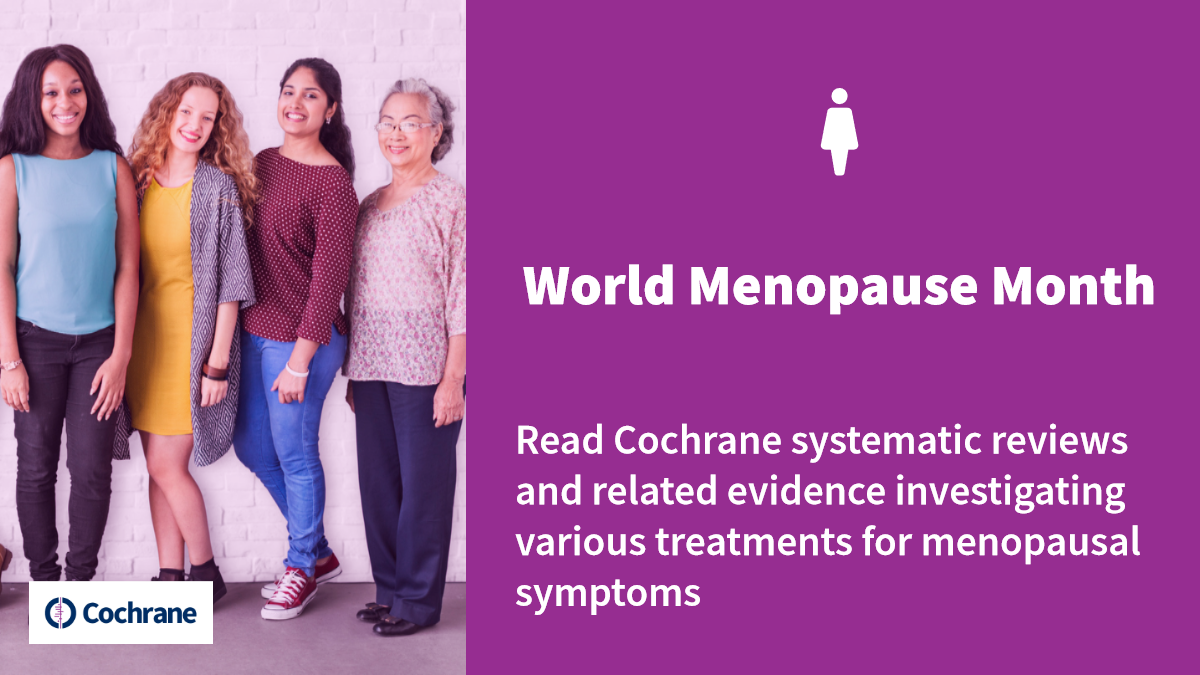
To raise awareness of health and menopause, the World Health Organisation and the International Menopause Society have designated October as World Menopause Month and 18 October 2019 as World Menopause Day.

To celebrate World Menopause Month and Day, we at Cochrane have collated a selection of reviews investigating various treatments for menopausal symptoms such as hormone therapy, tibolone, relaxation, exercise, and alternative therapy. Many but not all of these systematic reviews come from Cochrane Gynaecology and Fertility Group, who publish multiple reviews assessing the effectiveness and safety of interventions in menopausal women, including peri and postmenopausal women.
- Black cohosh (Cimicifuga spp.) for menopausal symptoms
- Dehydroepiandrosterone for women in the peri- or postmenopausal phase
- Hormone therapy for sexual function in perimenopausal and postmenopausal women
- Hormone therapy for endometriosis and surgical menopause
- Long-term hormone therapy for perimenopausal and postmenopausal women
- Short-term and long-term effects of tibolone in postmenopausal women
- Relaxation for perimenopausal and postmenopausal symptoms
- Acupuncture for menopausal hot flushes
- Chinese herbal medicine for menopausal symptoms
- Exercise for vasomotor menopausal symptoms
- Bioidentical hormones for women with vasomotor symptoms
- Oestrogen and progestogen hormone replacement therapy for peri-menopausal and post-menopausal women: weight and body fat distribution
- Hormone therapy in postmenopausal women and risk of endometrial hyperplasia
- Oral oestrogen and combined oestrogen/progestogen therapy versus placebo for hot flushes
- Local oestrogen for vaginal atrophy in postmenopausal women
- Testosterone for peri and postmenopausal women
- Phytoestrogens for menopausal vasomotor symptoms
Tuesday, October 1, 2019
